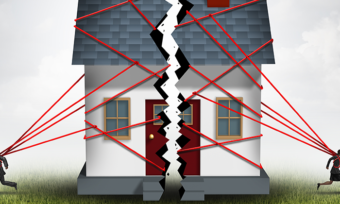
What is overcapitalisation?
When you break it down, overcapitalisation is basically when you spend money on a renovation that won’t be recouped by your home’s increase in value. It can happen with any part of the home, and occurs for a couple of reasons. Firstly, you may simply spend money on an addition that is absorbed by regular capital gains – especially if you’re holding onto the property for the long term.
The other main way overcapitalisation can occur is if you conduct a renovation that doesn’t actually add value to the home in the eyes of the buyer market. You might add in some decadent light fittings that look incredible, but don’t actually boost the value of your home by what they cost. You’ve got to think about it!
How to avoid overcapitalisation?
Firstly, make sure your renovations are appropriate. If a home already has two bathrooms, you likely don’t need to add a third one in. Likewise, expensive finishes and features on an otherwise inexpensive home in a low value area isn’t a great investment. Don’t over-spend when the property itself isn’t worth a whole lot.
It’s where professional advice and careful budgeting comes into play. Don’t overspend, and get a valuation and home loan help before you make any commitments.

Can overcapitalisation be good?
There can be some instances where spending too much on a renovation is actually useful. For example, if you’re committing to a property for the long term. If this is the case, then altering the property to suit your family plans could be beneficial no matter what the cost.
 John Bolton founded Squirrel in 2008. He is a former General Manager at ANZ, where he was responsible for the bank’s $60bn of retail lending and deposits. He has 10 years of senior banking experience behind him in financial markets, treasury, finance, and strategy, and is a director of Financial Advice New Zealand, the industry body for financial advisers. Check out Squirrel’s website for how Squirrel helps first home buyers, here.
John Bolton founded Squirrel in 2008. He is a former General Manager at ANZ, where he was responsible for the bank’s $60bn of retail lending and deposits. He has 10 years of senior banking experience behind him in financial markets, treasury, finance, and strategy, and is a director of Financial Advice New Zealand, the industry body for financial advisers. Check out Squirrel’s website for how Squirrel helps first home buyers, here.
Enjoy reading this article?
You can like us on Facebook and get social, or sign up to receive more news like this straight to your inbox.
By subscribing you agree to the Canstar Privacy Policy




Share this article